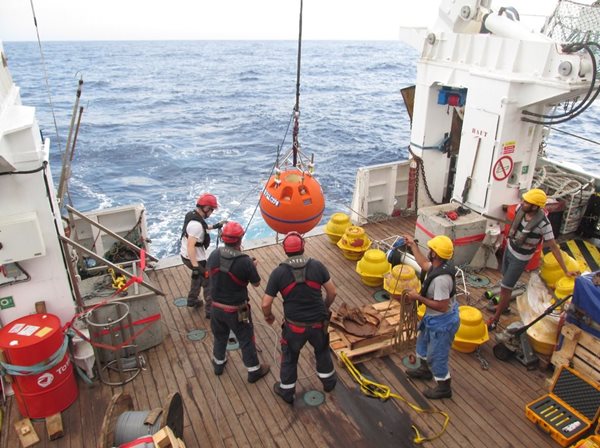The Indian Ocean has many pressing and escalating societal pressures - mostly driven by the massive population (2 billion people) which lives around the equatorial and northern rim and islands. India's population alone increased more than 75% between 1970 and 2000, reaching 1.3 billion people in 2014. The decimating state of both artisinal and industrial fisheries raises serious concerns about food security in this region, especially in light of climate change and a changing global ocean. Indeed, the Indian Ocean is one of the fastest warming ocean basisn and convincing evidence now exists that demonstrates climate change is impacting ocean upwelling - one of the most fundamental and powerful mechanisms in ocean dynamics that underpins the critical supply of nutrients to sustain ecosystems and marine food resources.
Current research investigates the underpinning processes that sustain food security (i.e. ecosystem functioning) with a strong focus on how climate change and a changing global ocean will impact marine upwelling systems in the western Indian Ocean. Investigation of these upwelling systems and their links to food security requires a full multidisciplinary approach from physics to fish to forecasts (security), and encompasses and couples the fields of physical oceanography, biochemistry, plankton, trophic ecology, fisheries and food resources - all quantified by end to end ecosystem and socio-economic modelling. Prof Roberts' research program called the Western Indian Ocean Upwelling Research Initiative (WIOURI) totally embraces this approach and moreover uses modelling not only to understand, couple and quantify processes, but also to streamline the avenues of multidisciplinary investigation, making the research program more focused on the ultimate deliverable - how and by how much is climate change and a changing ocean going to impact food resources in the WIO. Great emphasis is placed on linking and transferring these research outputs into ocean governance and food security structures including national governmental departments, SAPHIRE, ESA, Nairobi Convention and the FAO. Indeed, the FAO is thoroughly involved in WIOURI as its EAF-Nansen program is a core partner.
